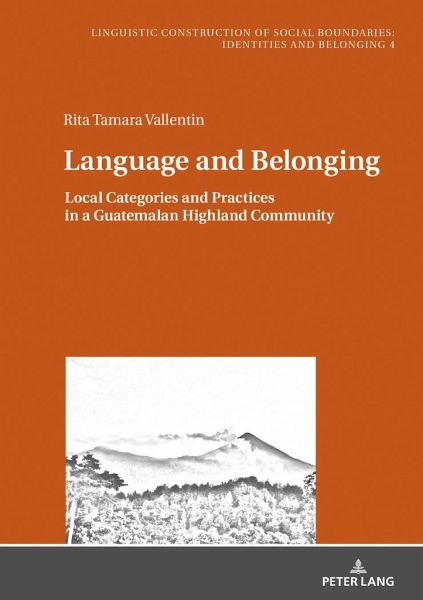
Language and Belonging
Local Categories and Practices in a Guatemalan Highland Community

PAYBACK Punkte
0 °P sammeln!
In this book, the author introduces belonging from a sociolinguistic perspective as a concept that is accomplished in interaction. Belonging can be expressed linguistically in social, spatial and temporal categories - indexing rootedness, groupness and cohesion. It can also be captured through shared linguistic practices within a group, e.g. collectively shared narrative practices. Using conversation analysis and an analysis of narrative as practice bolstered with ethnographic knowledge, the author shows how belonging is tied to locally contextualized use of deictics and to collectively shared...
In this book, the author introduces belonging from a sociolinguistic perspective as a concept that is accomplished in interaction. Belonging can be expressed linguistically in social, spatial and temporal categories - indexing rootedness, groupness and cohesion. It can also be captured through shared linguistic practices within a group, e.g. collectively shared narrative practices. Using conversation analysis and an analysis of narrative as practice bolstered with ethnographic knowledge, the author shows how belonging is tied to locally contextualized use of deictics and to collectively shared narrations of the past in a Guatemalan community. The book examines the understudied phenomenon of belonging at the intersection of pragmatics and linguistic anthropology.














